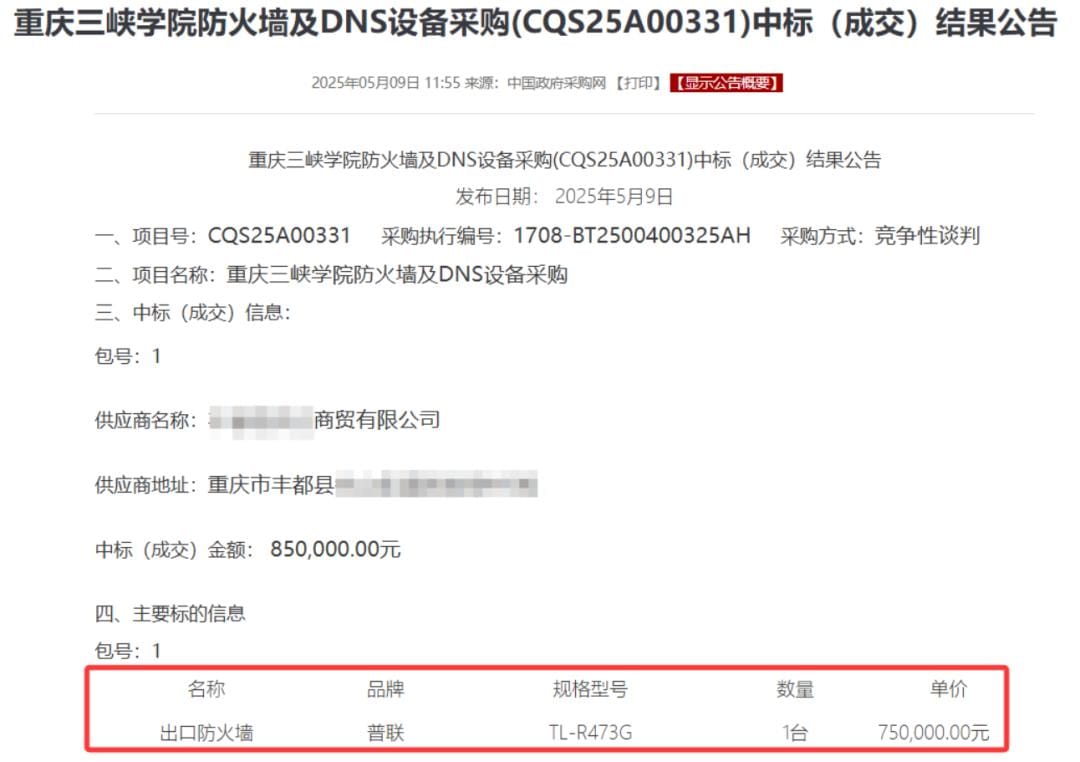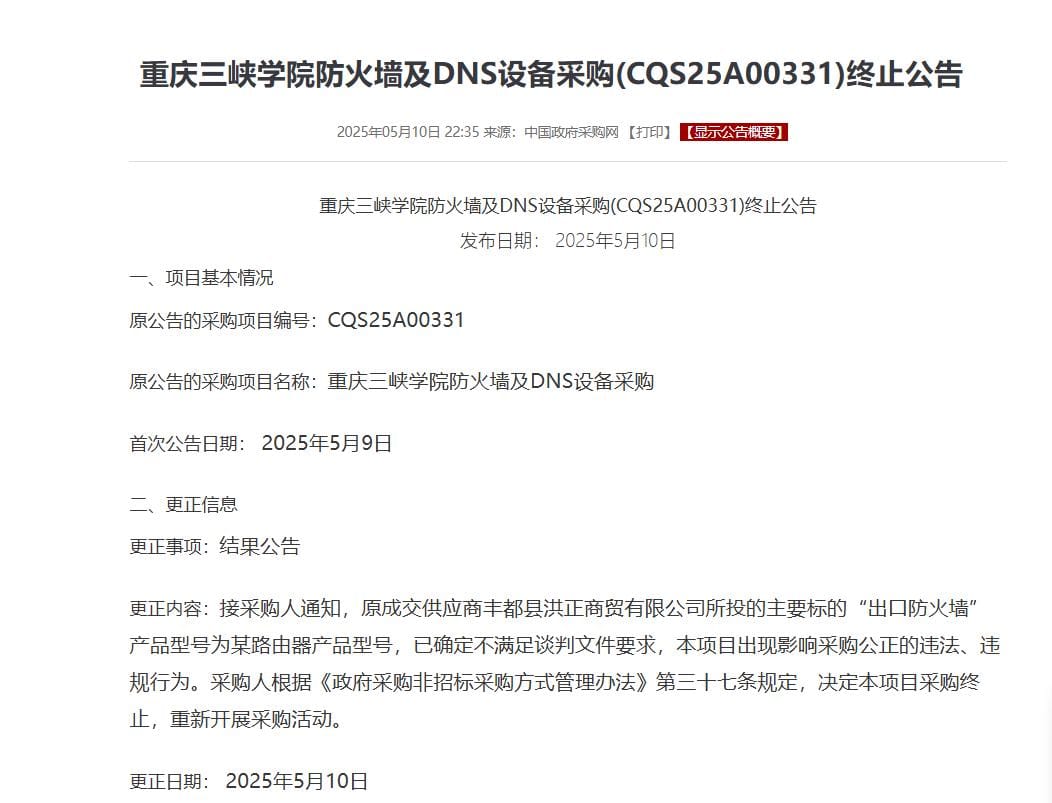A Router ¥299 Sold for ¥750,000! It's Robbery!
A chilling case in Chongqing reveals a shocking 750,000¥ procurement scandal where a 299¥ router was sold as expensive network security gear.

Imagine paying 750,000¥ for what turns out to be a mere 299¥ router. Sounds absurd, right? Yet, this is exactly what happened at a university in Chongqing, sparking outrage, confusion, and a massive investigation. 😡

The Absurdity That Has Everyone Talking
When a public procurement project involves such an egregious disparity—in this case, over a 2000x markup—it's not a simple clerical error, it smells like something rotten. The project was for a network security firewall, a serious and expensive piece of tech. So how did a cheap router sneak its way in and win a contract priced for high-end equipment? This brazen misstep has even attracted the attention of central media outlets like Xinhuanet.
On May 13th, official statements confirmed that the original tender was for network security worth 750,000¥ but somehow, a router worth 299¥ passed stringent vetting and won the bid at 850,000¥. This discrepancy is staggering and raises serious questions about corruption, fraud, or at the very least, incompetence. 🤯

Behind the Scenes: How Did This Happen?
Sourcing public contracts usually involves multiple layers of checks, right? Surprisingly, the evaluation relied only on a simple "integrity declaration" without requiring companies to provide detailed credentials, technical specs, or financial records. Imagine awarding millions of yuan contracts on a simple signature without proof! This method opens the door for empty shell companies to win bids just by claiming honesty.
The three experts responsible for judging the bid claim to have followed regulations strictly, but these regulations seem absurdly lax. How can a project for network firewalls be entrusted to a vendor simply producing a declaration? Isn’t due diligence the entire point of public tenders? 📉
What’s Next? Calls for Transparency and Justice
Central investigative bodies and local authorities including the disciplinary committee and finance bureau have stepped in. The public demands more than just a re-tender—there needs to be accountability. Was this a setup among bidders? A deliberate scheme to embezzle public funds? These critical questions deserve answers, and the authorities must not stop until full transparency is achieved.
This case serves as a stark reminder that procurement processes need stricter controls and that public funds are not to be squandered by shady loopholes. Until reform comes, the 750,000¥ router remains a monument to what can go wrong when oversight fails spectacularly. 😤
Final Thoughts
In the end, citizens want a clear explanation. They want corrupt practices rooted out, and honest governance restored. When money meant for education and technology is wasted on blatant fraud, it isn’t just an administrative blunder—it’s a betrayal of public trust.




